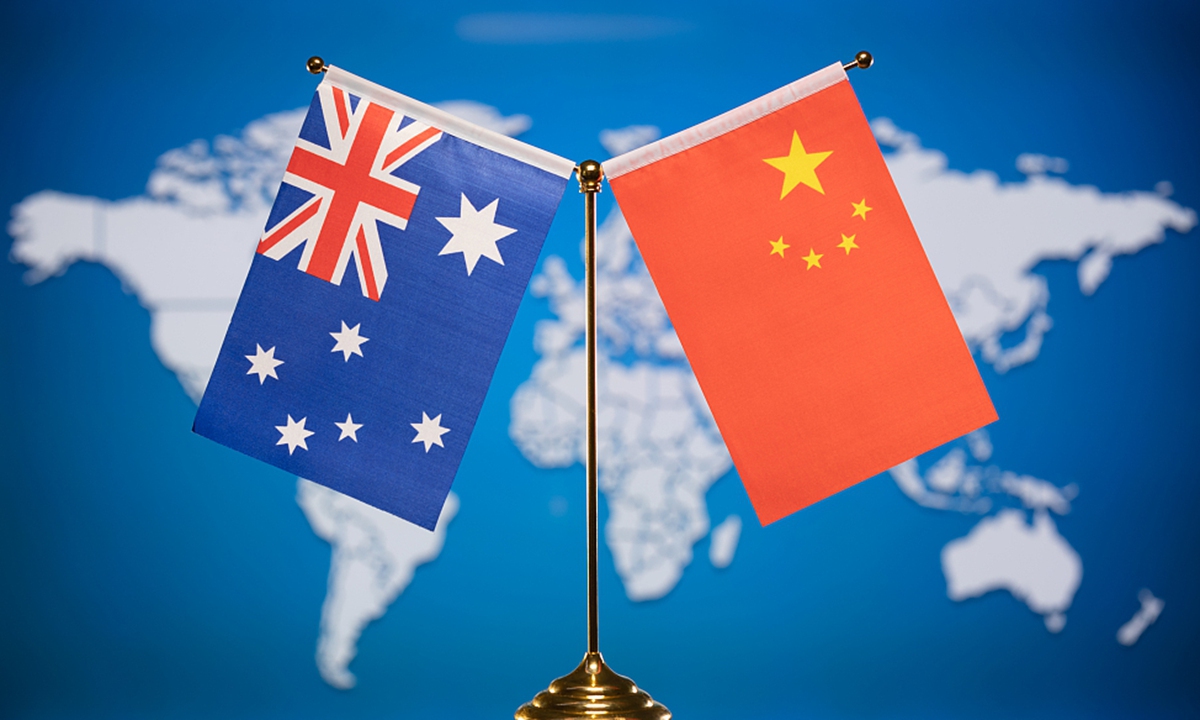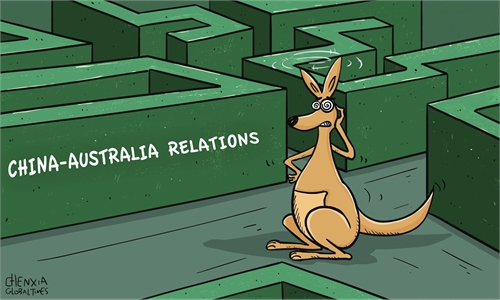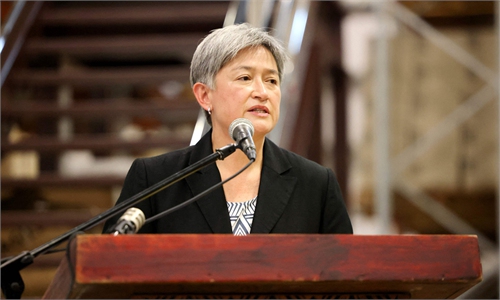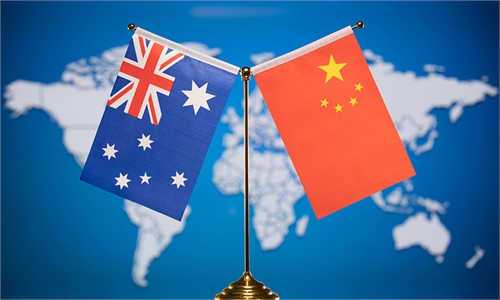
China Australia. Photo: VCG
China and Australia agreed to commerce or restart dialogue in six areas, according to a joint statement released after an "ice-breaking" meeting between Chinese State Councilor and Foreign Minister Wang Yi and Australian Foreign Minister Penny Wong on Wednesday.The six areas include bilateral relations, trade and economic issues, consular affairs, climate change, defense, as well as regional and international issues.
The development is an encouraging start for the recalibration of China-Australia relations that are currently at a crossroads amid challenges from geopolitics and interference from external forces. Against the backdrop of the deepfreeze in China-Australia relations over the past few years as well as the 50th anniversary of the establishment of diplomatic relations between the two countries, the willingness of the two sides to restart dialogue and communication has undoubtedly sent a positive signal about the fast thawing in bilateral ties, indicating an end to the downward trend of their relationship.
Over the past half a century, friendly cooperation as well as mutual benefit and win-win results are the main tone of China-Australia relations. The reason why bilateral relationship plunged into an unprecedented deepfreeze over recent years is because Australia's previous Liberal Party government tied its interests to the US' anti-China chariot and almost abandoned the China-Australia comprehensive strategic partnership. As a result, bilateral exchanges and cooperation in terms of political, economic, social and cultural areas have been seriously affected, which is not the situation China wants to see.
With the current Labor Party government showing a willingness to change the country's China policy, bilateral relations are now at a new development threshold, which have the objective conditions and reasons for recalibration and setting sail again.
China attaches great importance to Australia's willingness to improve and further develop bilateral relations, and has repeatedly emphasized the need to meet each other halfway. It is understandable that there are still differences between the two sides, but what's crucial is that both countries can find common ground and balanced approach to manage and handle their differences, instead of magnifying them.
China and Australia have no territorial disputes, no historical grudges, no structural and substantive conflicts. China is Australia's largest trading partner, with bilateral trade surging from merely $100 million five decades ago to $230 billion in 2021. At present, trade with China accounts for 30 percent of Australia's total trade.
As China and Australia are two important economies in the Asia-Pacific region, the sound and stable development of bilateral ties not only serves the fundamental interests of people of the two countries, but is also conducive to the stability and prosperity of the region.
Moreover, in the context of a global economic downturn, the Australian economy is facing great pressure. Under such circumstances, there is already growing calls in Australia urging the Anthony Albanese administration to change the previous government's wrong policy toward China and improve bilateral relations for the sake of national interests.
In June, Vicki Thomson, chief executive of the Group of Eight (Go8), which represents elite Australian universities, urged the new government to assist universities and the business sector by having the diplomatic sophistication to better manage the relationship with China so as to revive the international education industry and the overall economy of Australia.
Therefore, for the Albanese administration, it is an unavoidable and urgent task to lead Australia out of the deadlock in its relations with China and return bilateral ties to the track of mutual benefit.
Whoever ties the bell around the tiger's neck must untie it. To get rid of the shadow left by the previous government, Australia's China policy requires a lot of efforts from the current government, of which the most important is action in line with the words.
Indeed, Australia is not the only Western country that has seen its relationship with China experience twists and turns in recent years, which is mainly due to the influence of the US containment of China. The thaw in China-Australia relations may offer some revelatory reference to other Western countries: Pragmatic cooperation is the only way to meet the interests of both sides and even boost global economic development.



